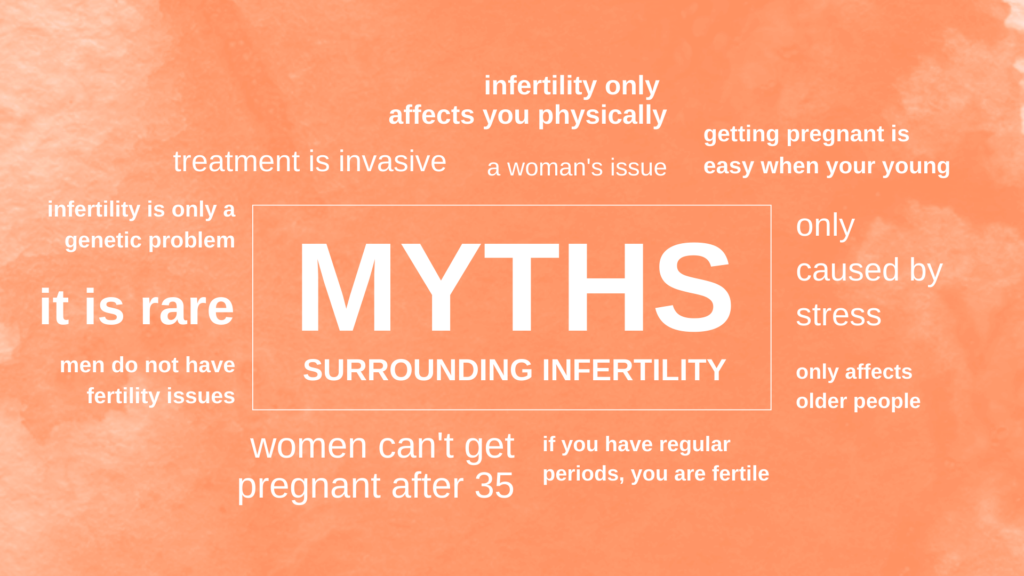Infertility is a disease that is often overlooked and surrounded by misconceptions. Many couples trying to conceive usually come face to face with unsolicited advice from others who entirely do not understand their circumstances. At the same time, those experiencing fertility issues may be confused or at a loss of what is truly fact and what is just an old wives tale. Reproductive Fertility Center strives to break down the fallacies surrounding fertility and bring to the forefront concrete information about reproductive health. Read more to find out the truth behind common infertility misconceptions.
1. INFERTILITY IS A WOMAN’S ISSUE
There is a popular stigma that positions women to be solely responsible for infertility. Many people feel that infertility is just a woman’s issue, yet science proves that this cannot be further from the truth. In fact, women account for a third of infertility cases, while men also make up about a third as well. The remaining third is due to unexplained infertility or a combination of complications. According to Azura Masculine Care, “Nearly 50% of men dealing with infertility have low sperm counts as the primary factor. This condition is considered to be the most common cause of infertility.” Different causes of male infertility could include genetic defects, undescended testicles, diabetes, or testicular infections. Couples who are facing fertility issues are encouraged to explore all possibilities that may be causing a delayed conception.

2. HAVING A SECOND CHILD IS AS EASY AS HAVING THE FIRST
Those who found it easy to conceive their first child are often perplexed when struggling to conceive their second. Secondary infertility is the inability to conceive a second child after carrying and delivering a first. Explanations of why a couple may be experiencing infertility involve age, low sperm count, endometriosis, polycystic ovary syndrome, or damaged fallopian tubes. Popular and effective secondary infertility treatments for many couples includes in vitro fertilization (IVF) and intrauterine insemination (IUI). Through various treatments couples can potentially conceive a second child.
3. IT’S IMPOSSIBLE FOR A WOMAN TO BECOME PREGNANT AFTER 35
Generally speaking, a woman’s fertility is at its peak from her teens to her mid-20s and does begin to decline in her mid-30s, but it does not completely discard her from becoming a mother.
Parents.com shares that, “At 35, most females have a 15% to 20% chance of getting pregnant in a given month. That could mean a 78% chance of conceiving within the year. Age is a contributing factor when trying to conceive, but through modern science, it has become plausible to minimize this contributing factor.
In light of today’s culture, many do not consider family planning until they are in their 30s due to reasons, such as career development or financial growth. If trying for a child is not something to consider in the near future, we highly recommend that the individual should consider fertility preservation options.

4. MALE FERTILITY STAYS CONSISTENT THROUGHOUT HIS LIFETIME
Males, unlike women who stop producing eggs at a certain age, never stop producing sperm. While sperm quantity may not be an issue, the quality of their sperm does differ with age. After the age of 35, the quality of sperm does begin to change. Give Legacy states that “studies show that the decline begins around age 35—in one study, men over the age of 35 had fertility rates of 25%, compared to men under 35 who had fertility rates of 52%.” Conducting a semen analysis would aid in a person’s understanding of factors, such as low sperm count, poor sperm motility, the acidity of the semen, and sperm concentration could potentially be the cause of a pregnancy delay.
If you or your partner are seeking assistance or are looking to explore your fertility options, Reproductive Fertility Center is here for you. We understand that infertility can be a long and difficult journey for a couple and we have years of experience tending to everyone’s needs with care. Call our center to be connected to a care coordinator for more information.



